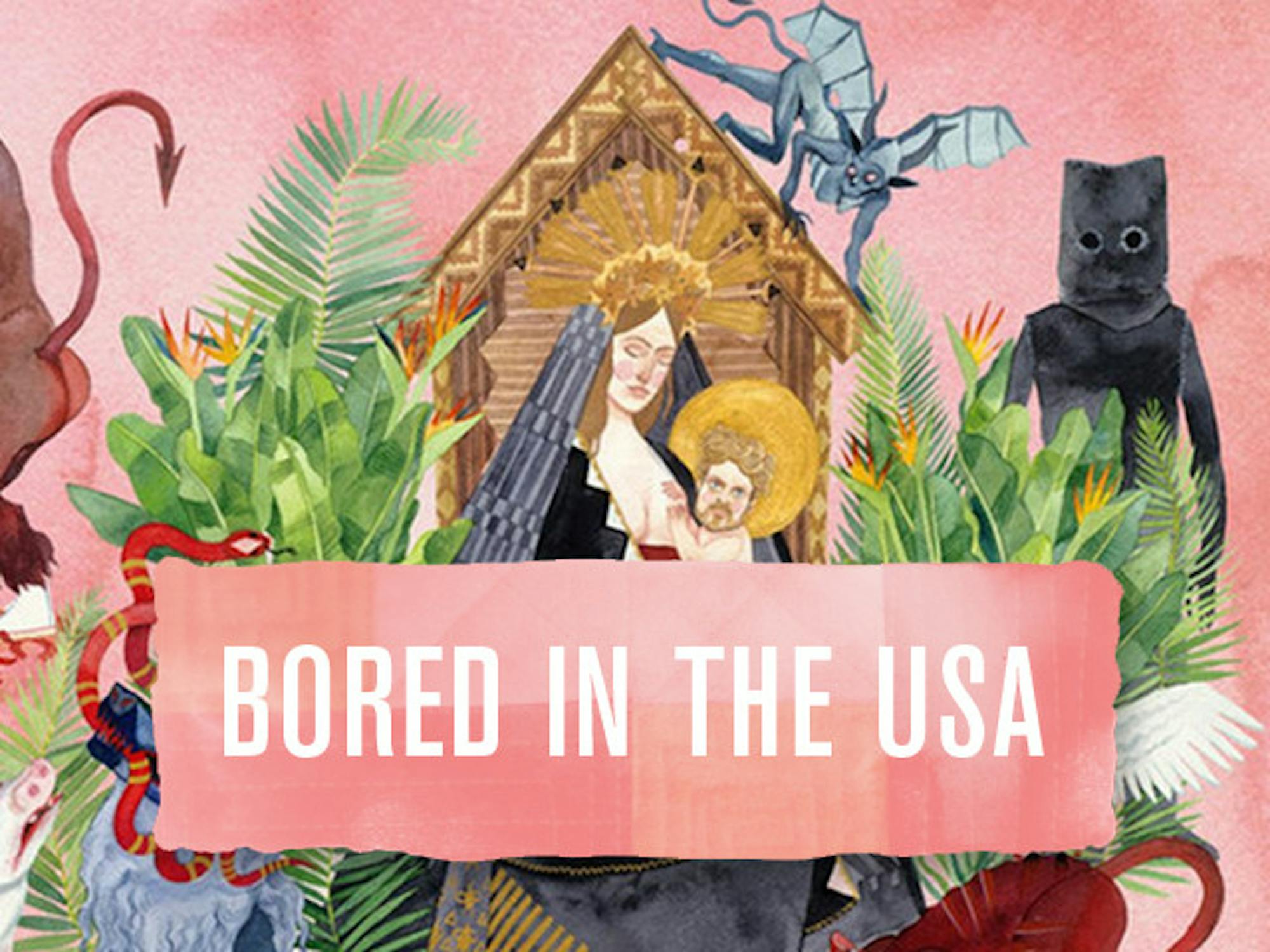
Samantha Coughlin
Father John Misty, the moniker of former Fleet Foxes member Josh Tillman, is a musical project based on a façade. The name alone suggests a Gatsby-esque act of self-reinvention. As Father John Misty, Tillman has created the charismatic persona of a bearded, drug-addled shaman. It is an identity clearly rooted in satire, but one that appeals to the romanticized fauxhemia of the Coachella audience as well.
“Bored In the USA,” the lead single off his forthcoming second album “I Love You, Honeybear,” walks that same delicate line between irony and sincerity. “My brain’s so awfully glad to be here for yet another mindless day … by this afternoon I’ll live in debt,” Tillman bemoans over seemingly earnest piano chords on the first verse. For a generation that grew up under the specter of 9/11, the Iraq War and the Great Recession, this disillusionment is a familiar sentiment.
Yet, it is a disillusionment that hinges on an entitled sense of the American dream. “Is this the part where I get all I ever wanted?” Tillman asks, as if that was ever the promise to begin with. As Pitchfork’s Ian Cohen noted, the song “casually drops a nuclear bomb on the entire franchise of privileged white men making their spiritual void the dark center of the universe.”
Tillman speaks to his intentions in his brilliant press release for “I Love You, Honeybear.” According to him, the album features “an indulgent, soulful, and epic sound worthy of the subject matter” that addresses “the destruction of emotional and intellectual prisons in my own voice. Blammo.” This description teeters on the brink of pretentiousness before pulling back with a self-aware interjection of “blammo.”
The satire of “Bored In the USA” is successful because it is contained within an artificially earnest façade. “They gave me useless education / And a sub-prime loan on a craftsman home ” Tillman sings, as the sound of a studio audience’s canned laughter echoes. “Keep my prescriptions filled / And now I can’t get off / But I can kind of deal.” His complaints have all the familiarity of a Chuck Lorre-produced sitcom: set-up, punchline, laughter, repeat.
In his amazing performance on Letterman, Tillman initially appears to be seated playing a grand piano. As the second verse begins, the camera angle changes and it becomes apparent it is really a player piano. It further underlines the artifice of the song and of the privilege he is critiquing.
“Bored In the USA” mines the same territory as Lana Del Rey, for whom he opened on tour earlier this year. Del Rey’s image is rooted in an “all-American” image of femininity that draws upon images of old Hollywood starlets and 1950s housewives. On “Brooklyn Baby,” she assumes the identity of a Williamsburg hipster with “feathers in (her) hair” who pines for the “freedom land of the 70s.” The images on “Old Money”— “Blue hydrangea, cold cash divine / Cashmere, cologne and white sunshine" — are Del Rey’s broadly drawn WASP stereotypes.
Del Rey employs such obvious signifiers to point out how empty and shallow these archetypes are. As Ayesha Siddiqi argues in her essay “Ms. America,” “Lana lets us negotiate American identity with less cognitive dissonance by serving patriotic cliché as kitsch." An MTV study from earlier this year titled “Millenials & #Merica” found that “80 percent of Millennials say America remains the land of opportunity: however, 56 percent also feel the American system has let them down." Twenty-first century patriotism has moved away from blatant nationalism; instead, it is a patriotism that is rooted in contradiction.
Like Del Rey, “Bored In the USA” deftly blurs the line between the literal and the satirical. It embodies the dissonance of Millennial patriotism by being completely artificial at first glance. We can see behind the façade of the American dream, but we’re not willing to tear it down either. Bored in the USA, indeed.









